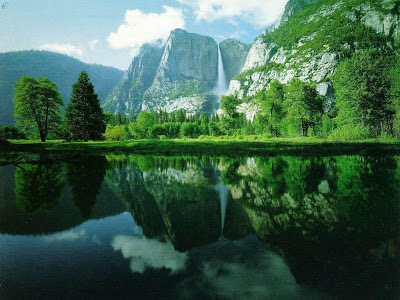The Coronovirus Reveals What Always Has Been True
Two weeks before the novel coronavirus shut down the United States, I flew to New York for the funeral of Jack Welch. There will be no more plane flights for me or you for a while. And despite the pandemic’s shocking death rate, no funerals either. Since Jack’s death, of natural causes, I’ve been reflecting on the ideas of General Electric’s controversial former boss, regarded variously as the supreme CEO of the 20th century or some sort of scoundrel. I remember him as a beloved friend and, surprisingly, a guru who taught me how to think. The most essential of his ideas might help us survive and prosper through the current crisis:
Face reality as it is, not as it was or as you wish it were.
That’s easier said than done. It takes intelligence to perceive reality as it is, and courage to accept it. By implication, facing reality has a grave consequence: personal responsibility to take action in accord with reality, whatever the cost. That responsibility is what makes most people flinch – and distinguished Jack from ordinary humans.
Let’s consider the reality of this pandemic. What threatens human lives and upends economies worldwide is a virus, a tiny, simple, unliving thing, a spike-studded capsule of RNA 120 namometres in diameter. The virus means us no harm. It is unaware that we exist. Like nature itself, the virus is indifferent to us. To the degree we may anthropomorphically impute a motive, the virus wants only to reproduce. In that Darwinian context, killing humans is an undesirable unintended consequence of viral reproduction: The coronavirus would reproduce most effectively if it killed none of its hosts. Ideally, it would mutate until it became no more harmful than a common cold. In that state, the virus might live in harmony with us forever, while reproducing like crazy.
Now let’s look at ourselves. Humans are an inventive species with a particular gift for toolmaking – for technology, as we call it. Since the Industrial Revolution, our ability to invent and build new technologies has been growing exponentially. So has our exploitation of the planet’s finite resources. Not only do we enthusiastically burn carbon-based fuels, but we humans spend $650 billion annually subsidizing the activity. We have demonstrated beyond reasonable doubt our collective inability to control what we create. Thus nuclear bombs, global warming, privacy-invading social media, AI-guided weaponry, and so on – and, not incidentally, our self-created vulnerability to this murderous little virus. Our global travel, supply chains, aggregation into urban centers, even our primal need to gather in groups – all these aid the virus and disadvantage us.
Economically, the global triumph of capitalism has been accompanied by commitment to an economic model that requires endless growth. The U.S. economy, like the economies of most developed countries, is healthy only when it is growing. It’s like a shark that must continue to swim to stay alive. One difficulty with that model is that, every now and then, growth gets interrupted: the result is a recession or, worse, a depression. The more fundamental problem is that our economies are based on exploitation of natural resources, from oil to palladium. Even if climate change were not a slow-motion catastrophe for humans, at some point we may consume the last of the Earth’s resources. Unlike human ambition, our planet Earth is not without limits. Eventually, our economic machine will run out of gas.
Since Biblical times, Western societies have relied on the odd notion that human beings exercise dominion over nature. As the book of Genesis says: “And God said, Let us make man in our image, after our likeness: and let them have dominion over the fish of the sea, and over the fowl of the air, and over the cattle, and over all the earth, and over every creeping thing that creepeth upon the earth.” Perhaps that helps explain how we got ourselves into such a mess with the coronavirus: We assumed that, somehow, we could operate above and apart from nature. Covid-19 reminds us that we can’t.
Both science and philosophy tell us that, in the long term, our survival as a species depends on attaining some sort of harmonious relationship with the rest of nature. Not only do we lack dominion over nature – we are subordinate to it. We are part of nature. That’s reality.
Far from seeking to harm us, the coronavirus might be understood as a particularly timely and helpful reminder, a suggestion that we might want to start re-adjusting our relationship with nature, sometime around now.
In my parents’ day, World War II was the searing experience shared by nearly everybody on Earth. Today, it’s the coronavirus. People of my parents’ generation justified the horror, fear, and suffering they experienced by the collective defeat of dangerous, remorseless enemies. Citizens of developed nations who had lived through the miseries of WWII benefitted from the outcome achieved: a multi-decade era of peace, prosperity, and more or less enlightened government.
Today, the 7.8 billion members of our species face a single, remorseless enemy: the coronavirus that causes the disease of Covid-19. In the United States, our focus understandably is on ourselves. But we will not be safe until the virus has been tamed worldwide – in every Brazilian favela, Syrian refugee camp, or Nigerian slum. If ever there was a time to unite as a species, across all boundaries of nationality and belief, it is now. And if ever there was a time to reassess our relationship to nature, and to natural systems, it is now.
Like the coronavirus, which needlessly and profligately kills many of its hosts, we humans, busily wrecking the planet on which our lives depend, don’t know what’s good for us. The Earth is our host.
Stratford Sherman, an advisor to CEOs, co-authored Control Your Destiny or Someone Else Will, the first independent study of GE’s transformation under Jack Welch. His most recent publication is Doombusters.
